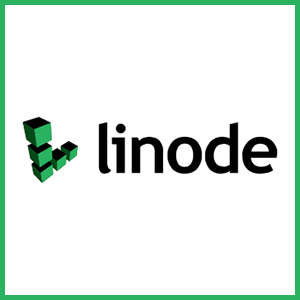 Cheap VPS provider Linode is being acquired by CDN giant Akamai.
Cheap VPS provider Linode is being acquired by CDN giant Akamai.
According to the press release, Christopher S. Aker (Linode CEO) said:
“Akamai has no intention of changing what has made us successful. This acquisition will propel us both forward — not take anything away. Linode will soon be able to call on the power of Akamai to offer entirely new products, services, expertise, locations, and scale, while Akamai will be able to tap into Linode’s deep expertise in compute, storage, and on-demand infrastructure-as-a-service.”
How “deep” this expertise runs is a matter for debate. Although I’ve always enjoyed excellent service from Linode, they’ve suffered from some ghastly hacks over the years, and some in the community have commented that early on, Linode wasn’t all that different than other hosts behind the green curtain. However, they seemed to hit a second gear and accelerate a few years ago – more aggressive pricing, more features, new locations.
I’ve always thought of the market as having three tiers. At the top you have the big public clouds (Amazon, Google, Microsoft), and at the bottom a great sea of small hosting firms. In between are a bunch of scrappy players who’ve got a bit more financial backing and are able to offer bigger scale and more cloud-like features, such as API, block volumes, firewalls, load balancers, migrations, floating IPs, snapshots, etc. Some of these features have reached smaller players but the features small hosts are largely limited by the software they use, whereas in the mid tier and above, everything (control panel, billing, etc.) is custom.
Linode has been acquired. DigitalOcean went public. Everyone is reaching for scale. Here’s a spicy hot take: Vultr is next.
Why Vultr is the Next $1bn Unicorn
Vultr is roughly the same size Linode. According to Wikipedia, the most recent estimate revenue for privately-held Linode is $100m. For Vultr, it’s $125m.
Vultr’s service offering is very similar to Linode’s: many locations, API, the same basic set of services give or take a check box. If Akamai is willing to pay 9x revenue for Linode, what will someone pay for Vultr? That implies a $1.1bn valuation.
And The Axe may be Coming to Linode
Let me note first that neither Akamai nor Linode has said anything about layoffs, so this is all speculative. But hear me out on this.
Linode has 11 locations around the world, and according to Wikipedia has 200 employees. At $100m revenue, that means the revenue:employee is about $500k.
I couldn’t find definitively numbers on Vultr head count. Vultr’s web site says they have “75+ engineers and developers” and of course they need non-IT people as well. Let’s say they have 150. With that staff they are staffing more than twice the number of locations and generating 25% more revenue overall, at $833k per employee.
Obviously this is all very back of the napkin, but even if the headcount is the same, Vultr looks leaner/meaner than Linode. This again raises the question of how “deep” Linode’s cloud expertise is, when even with an 11-year head start (Linode was founded in 2003; Vultr in 2014), Vultr is able to lap them.
Is Akamai providing cloud expertise to Linode or vice-versa? No doubt, if you asked the respective CEOs, they’d say it’s a blending synergistic expertise, etc. and to some extent I can see that. Akamai obviously knows networking on a global scale as well as anyone, and Linode can plug-in some immediate cloud-hosting capabilities. Tapping that may be as simple as plumbing Linode’s data centers into Akamai’s massive global network and then deciding how to attack the competition.
But what’s the overall strategy here? You don’t buy something unless it’s either a static cash cow (not applicable here), to kill it (very unlikely), or you’re going to grow it. So what’s the growth plan?
Given Akamai’s numerous POPs, picking off the low-hanging fruit to stamp out more Linode datacenters is one option. Another plan might be to torch the competition with cheap network pricing. Akamai can do this – not all competitors will be able to match. And of course, there’s the obvious cross-selling: “Signing up for a Linode VM? Why not super-charge it with our CDN product…”
Stay tuned!























My prediction is: small earthquake.
Going to be shake up but does not mean better pricing for the small business.
Nice article. Akamai would surely streamline the costs in Linode, and definitely they want to keep and utilize the business drivers. Linode will definitely benefit from Akamai’s network backbone. How effectively and productively all of this plays out is yet to be seen.
I guess the biggest challenge Akamai will have to tackle is the work culture. I believe there will be lot of work culture Change that Linode staff will be required to adapt to. Best regards to both of them.
Akamai to offer hosting through their edge services finally?
the door is linode … vultr not needed … and this market not so complicated … so if there any stratigy for future linode can do it ;) …. and finaly vultr is just a stupide service